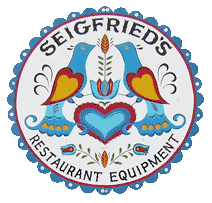Know the New Rules for Restaurant Regulation Safety
- Seigfried's
- Sep 11, 2018
- 2 min read
Updated: Dec 13, 2018
2017 FDA Food Code Key Issues That May Affect Your Operation Right Now: Personnel in Charge of Food Preparation:
Must be Designated and Certified as a Certified Food Protection Manager
Individual Must Always be on Site When the Facility is in Operation
Needs to Proof of your Certification
Documentation in Writing of Who is Designated on Shift as the Person in Charge Extra Precaution with Bandage
Bandages Pose Physical and Biohazard Risks to Consumers
If employees are wearing an impermeable bandage on their hands, it must be covered with a single-use glove to reduce the risk of losing it in food Bodily Fluid Cleanup Incidents:
Must Have a Written Standard Operating Procedure (SOP) that is Available for Review at all Times
The SOP must Include Specific Employee Training and Actions. New Cooking Times for Meats:
Emu and Ostrich, Mechanically Tenderized and Injected Meats, Chopped, Flaked, Ground, Minced Fish, Meat, or Game Commercially Raised for Food Must be Cooked to 155 degrees Fahrenheit for at Least 17 Seconds
As Soon as Poultry Reaches 165 degrees Fahrenheit, it is Considered Safely Cooked
FAQ to Regulators by Manager Removal of Fake Fingernails Before Work: Fake fingernails pose a health hazard because they are difficult to keep clean and could easily break off into food during preparation. Artificial nails can harbor hundreds of thousands of bacteria, even after hand washing, and can increase the potential for pathogen transmission. Wearing An Apron: Aprons act as a barrier to prevent microorganisms, hair, dust, dirt and other physical contaminants that might be on an employee’s clothing from transferring to the food, equipment, or utensils with which they are working. An apron must be worn in all areas of the back house, including but not limited to, washing utensils, preparing food, cooking food, and in some cases, even during cleaning. Remember to remove your apron when using the restroom or taking out the garbage. When to Wear Gloves: Foodservice employees must wear single-use gloves when handling or preparing ready-to-eat foods and when they are wearing an impermeable bandage on their hands. Gloves do not need to be worn when cleaning tables. How Long Should Employees be Out Sick Before Returning to Facility: After experiencing vomiting, diarrhea, or a sore throat with a fever, an employee must be symptom-free for 24 hours before returning to work. Food safety is a critical part of your establishment’s success. Take time to familiarize yourself with the new FDA Food Code regulations and communicate them to your employees. Stay tuned for more information and resources on the Future of Food Safety as we observe National Food Safety Month.
Want a helpful visual reminder of these changes? Check Out the Following!



